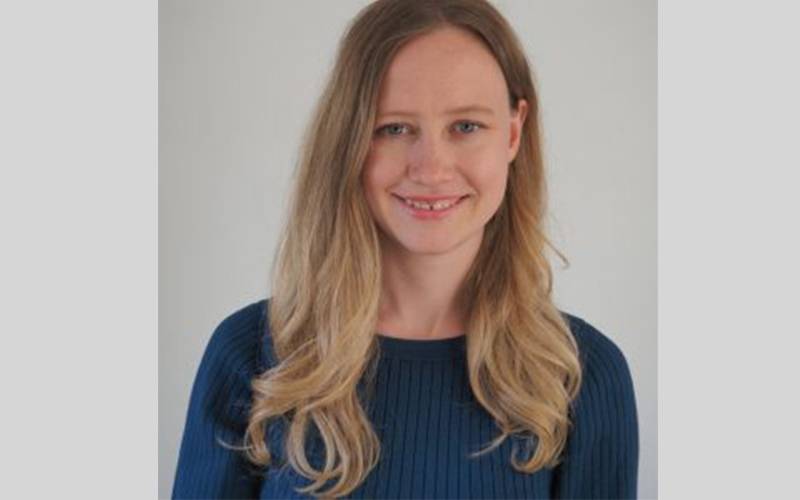This month we speak to our Early Careers Network Co-Chair, Dr Sophie Bennett, to find out how her research is improving the health of the public.
 What is your role and what does it involve?
What is your role and what does it involve?

I am a senior research fellow and clinical psychologist working in the Psychological Medicine Team at the UCL Great Ormond Street Institute of Child Health, led by Professor Roz Shafran. Our work focuses on developing and evaluating methods to ensure that children and young people who have emotional or behavioural difficulties, in the context of a chronic physical illness, are able to have both their mental and physical healthcare needs met in an integrated way. Ensuring that our work can be translated into routine clinical care is a priority and fundamental to the research we conduct, which is why we work closely with the Psychological Medicine Team at Great Ormond Street Hospital. I work across several different studies, focusing on different ways of integrating care. I’m also co-chair of the UCL Health of the Public Early Careers Network, which provides a platform for mentoring, practical careers advice and the dissemination of information about training, funding and job opportunities. Through events and meetings, we also provide networking opportunities for early careers researchers to meet each other, share ideas and experiences, and initiate collaborations. We currently have some committee spaces so please contact us if you would like to join!
How are you improving the health of the public?
The biggest study I am working on is the Mental Health Interventions for Children with Epilepsy (MICE) study. This is a five-year NIHR-funded Programme Grant involving developing an intervention for treating mental health difficulties in children and young people with epilepsy, who are known to have a greater risk of developing a mental health difficulty than children and young people without a physical illness. We then trained clinicians in epilepsy services, including epilepsy nurse specialists and paediatricians, to deliver the intervention. We’re now in the randomised controlled trial phase and have almost recruited 300 families of our target of 334 participants. We have also just finished the first phase of the ‘Lucy’ project at GOSH, which was an evaluation of a drop-in centre providing accessible, low-intensity early intervention services for patients and families concerned about their mental health, including parents and siblings. The initial results were very promising and we recently won the BMJ Mental Health Team of the Year award for the study.
What do you find most interesting or enjoyable about your work?
I love the mix of clinical and research work; it’s great to be able to develop research plans directly from our experiences working with families and to implement our research findings back into the clinic. I’ve also really valued working with a fantastic team, particularly over the past couple of years. In all our current studies, including MICE, the treatment is remotely delivered to make it easier for families to fit the sessions around their daily lives and so that young people don’t have to miss school. That meant we were lucky to be able to keep the studies going during the pandemic, but it needed a lot of teamwork to ensure the study processes worked and to support families over such a challenging time. It’s been fantastic to finally meet some of the newer members of our team in person over the last couple of months! It’s also been really rewarding to hear positive outcomes from families we work with.
How have cross-disciplinary collaborations shaped your research?
Working at the interface of physical and mental health means that my work is inherently cross-disciplinary. For the MICE study, the whole of the first year was spent developing the intervention and study protocol with input from families, clinicians, and researchers from a range of backgrounds: mental health clinicians, physical health clinicians, health economists, statisticians and qualitative researchers. Advice from the paediatricians and physical healthcare specialists helped us to develop the training and supervision package to make sure it would work in ‘real life’ clinical settings, beyond the life of the study. Most importantly, we have a very active patient and public involvement group of children, young people and their parents/carers, and together their expertise has shaped our research the most – from what questions we should be answering, to what the interventions look like and how we disseminate the results.
What advice would you offer to others interested in developing cross-disciplinary research?
Make the most of other people’s expertise and of being at UCL! There are so many interesting talks and events across the university, in areas that you may never have had the chance to learn about before.
What's next on the research horizon for you?
I’m currently developing a study to implement a pathway for treating emotional and behavioural difficulties in children and young people with chronic physical illnesses, building on the work we’ve done in the MICE and Lucy studies. I’m also developing my research in accessible, low-intensity interventions, which are now being used across schools and mental health services in England to provide early access to evidence-based interventions for mental health difficulties. I am first author on an edited textbook, the ‘Oxford Guide to Brief and Low-Intensity Interventions for Children and Young People’, which is due to be published early next year.
If you could make one change in the world today, what would it be?
Within mental health research, we often talk about ‘Parity of esteem’ - which according to the Royal College of Psychiatrists means ‘equal access to effective care and treatment; equal efforts to improve the quality of care; equal status within health care education and practice; equally high aspirations for service users; and equal status in the measurement of health outcomes’ for both mental and physical health.
 Close
Close

